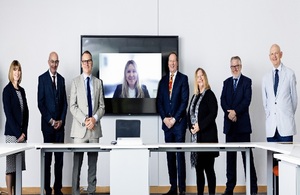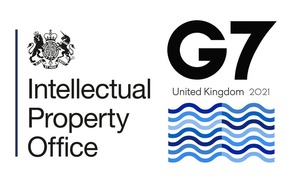Environment Agency and Angling Trust deliver training to help reduce Fisheries Crime in Cumbria
- The training consisted of different workstations providing an insight into various types of fisheries crime such as illegal use of nets and traps for taking fish
- This training was funded by fisheries licence income which the Environment Agency uses to support work to protect and improve fish stocks and fisheries
The Environment Agency worked with the Angling Trust and held a training day for the Cumbria Police Rural Task Force to give an insight into the various types of fisheries crime to help reduce illegal fish activities in Cumbria.
The training, which was held at Clearwater Fishery, Carnforth and funded by fisheries licence income, involved practical workstations focussed on fisheries offences: theft of fishing rights, theft of fish, illegal use of gill nets and traps for taking freshwater fish and working closely with communities to benefit the rural environment. Other stations included sections on rod licence evasion and how it affects Fisheries, and an input from Angling Trust coaches was provided with brief 1:1 coaching for any Officers that wanted to experience angling and its positive wellbeing benefits.
Rod fishing licence income is vital to the work of the Environment Agency to maintain, improve and develop fisheries. Revenue generated from rod fishing licence sales is reinvested to benefit angling with work including tackling illegal fishing. Fishing without a licence is not only illegal, but also takes away income that would otherwise be invested into the local fisheries and angling communities.
Damien Linney, Fisheries Enforcement Officer at the Environment Agency, said:
“Responsible fishing provides a great opportunity to connect with nature and feel the range of benefits doing so can bring. However it is important to remember you must have a valid rod licence and adhere to fishing bylaws and fishery rules.
“Fishing with illegal methods poses a risk to fish stocks, including already vulnerable stocks of salmon and eel, and other wildlife. It also undermines all the investment the Environment Agency makes using rod licence income and work by our partners in improving fisheries.”
Dave Lees, Angling Trust Northwest Region Enforcement Support Manager, said:
“Most Police Officers are non-anglers and are at a disadvantage when trying to understand angling, the relevant law and, the numerous poaching methods used to take fish illegally.
“This practical, very hands on training, in small groups, provides that understanding and develops key contacts and support, which moving forward develops joint working relationships between all parties involved. It encourages joint enforcement patrols between the agencies and provides the angling community with a better service.”
A police spokesperson for Cumbria Police said:
“We are extremely grateful to the Environment Agency and Angling Trust for providing this training to our officers.
“We’d also like to thank Clearwater Fisheries for allowing us to use their facilities for the day to allow officer to be involved in practical workstations.
“Illegal fishing is an ongoing issue and we will continue to work in partnership to prevent poaching and, to protect fish, the fishing industry and the environment.”

